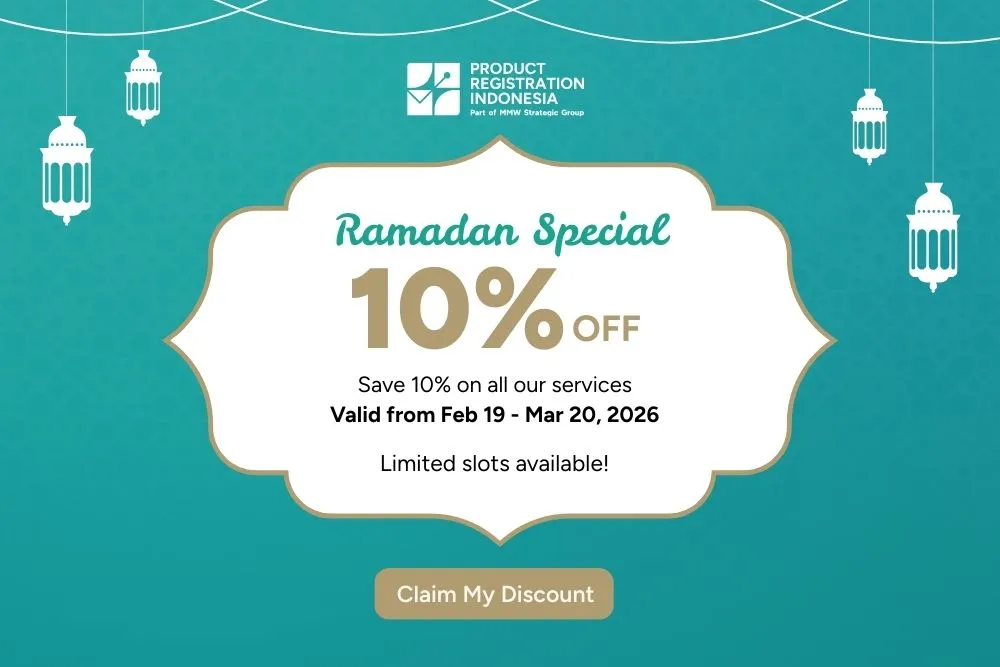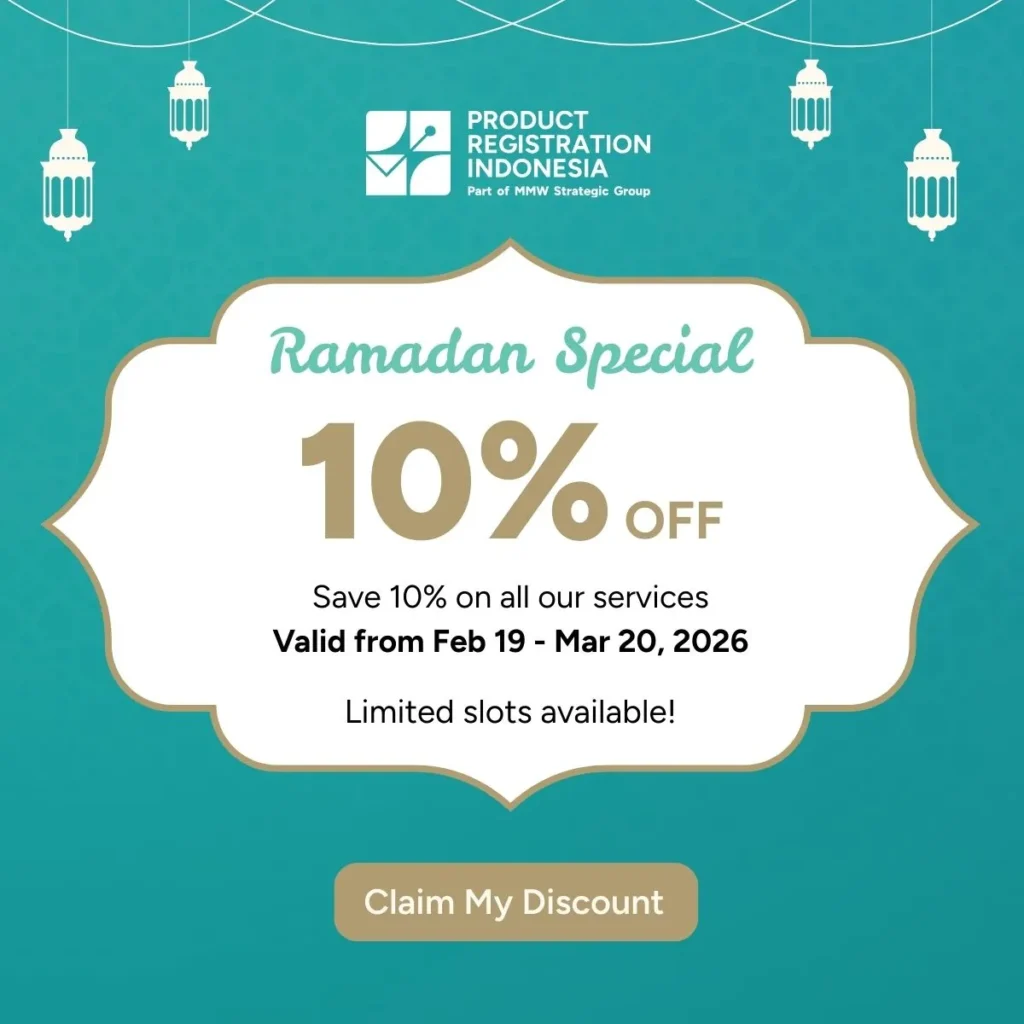Registration of Food and Beverages: Rules and Processes in Indonesia
Indonesia’s burgeoning food and beverage industry is a lucrative market for local and international businesses. However, entering this competitive landscape requires compliance with strict regulations set by the National Agency of Drug and Food Control (BPOM) and other relevant authorities. This guide offers an in-depth look into the rules and processes for registering food and beverage products in Indonesia, including compliance with BPOM standards, labelling requirements, halal certification, and quality assurance protocols.
Understanding BPOM: Gatekeeper of Food and Beverage Safety
BPOM is the primary regulatory authority in Indonesia, ensuring that all food and beverage products meet strict safety and quality standards before entering the market. By overseeing product registration, labelling, and post-market surveillance, BPOM protects consumer health and supports the development of the food industry.
For businesses, navigating BPOM’s regulatory requirements is critical to ensure that products are legally sold in Indonesia. Failure to comply can result in delays, penalties, or product recalls.
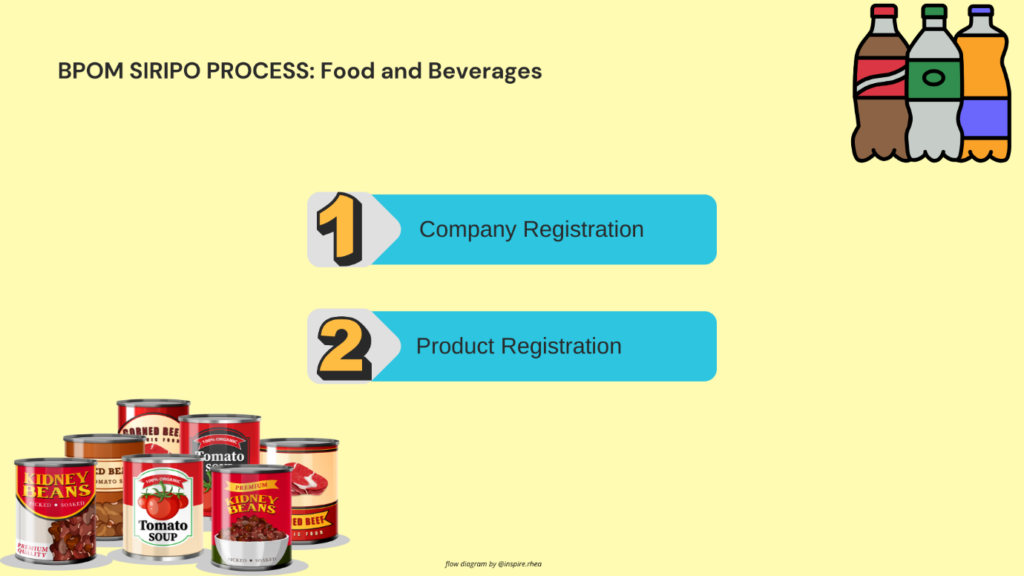
1. Register Your Business Entity
The registration process starts with registering your business entity online through BPOM’s platform. This step verifies the legitimacy of the business and ensures that only authorized entities can register food and beverage products.
Requirements for business registration:
- Valid business license specific to food and beverage operations. (can be done via oss.go.id platform)
- Taxpayer identification number (NPWP).
- Details of production facilities, including ownership or lease agreements.
Once the business is registered, the company gains access to BPOM’s online platform, Rumah Siripo, where the food and beverage registration process takes place.
2. Classify Your Food and Beverage Product
BPOM classifies processed foods into three risk levels based on the potential risks they pose to public health:
- Middle Low Risk (MR): Examples include packaged snacks, candies, and non-perishable beverages.
- Middle High Risk (MT): Includes dairy products, ready-to-eat meals, and other foods that require moderate scrutiny.
- High Risk (T): Includes infant formula, dietary supplements, and products with specialized nutrition requirements.
Why classification matters:
- The classification determines the complexity of the registration process.
- High-risk products undergo more rigorous evaluation, including laboratory testing and factory audits.
3. Check Food Categories and Fees
BPOM provides detailed information on food categories, registration fees, and required documents on the Rumah Siripo platform. Businesses can use this resource to determine their product classification and associated fees.
Visit Rumah Siripo for:
- Product classification details.
- Fee structures for various categories.
- Step-by-step instructions for submitting applications.
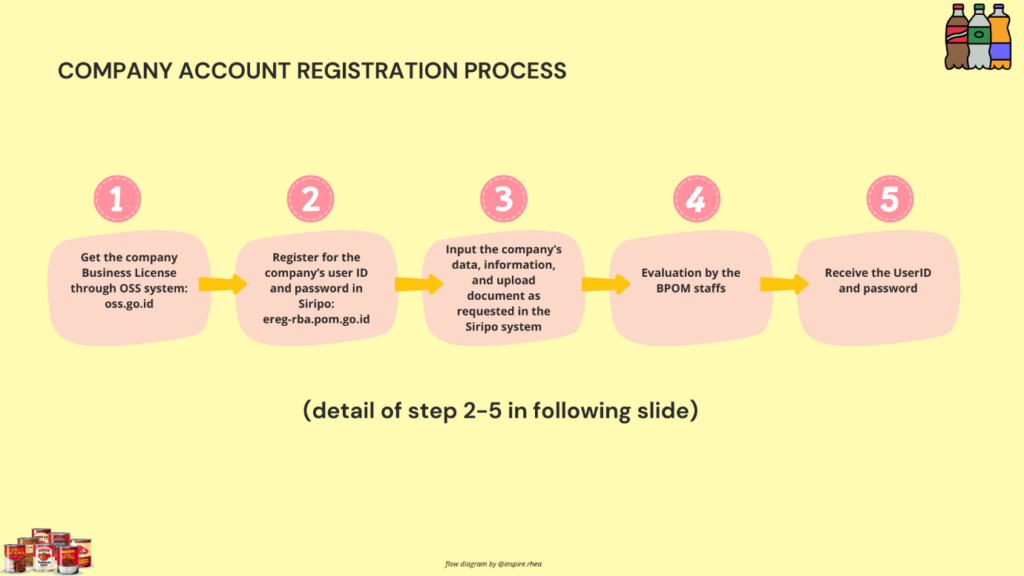
4. Prepare Your Product for Registration
Preparation is critical for a smooth registration process. Businesses must ensure that their products comply with BPOM standards and are ready for evaluation. Key steps include:
- Ensuring compliance with prohibited substance regulations:
BPOM maintains a strict list of banned additives, preservatives, and other substances. Review these regulations thoroughly to ensure compliance.
- Ensuring compliance with prohibited substance regulations:
- Labelling your product correctly:
Labels must adhere to BPOM standards, including:- Accurate product name.
- Comprehensive list of ingredients, including allergens and additives.
- Nutritional information presented clearly.
- Production code and expiration date.
- Instructions for use or storage if applicable.
- Labelling your product correctly:
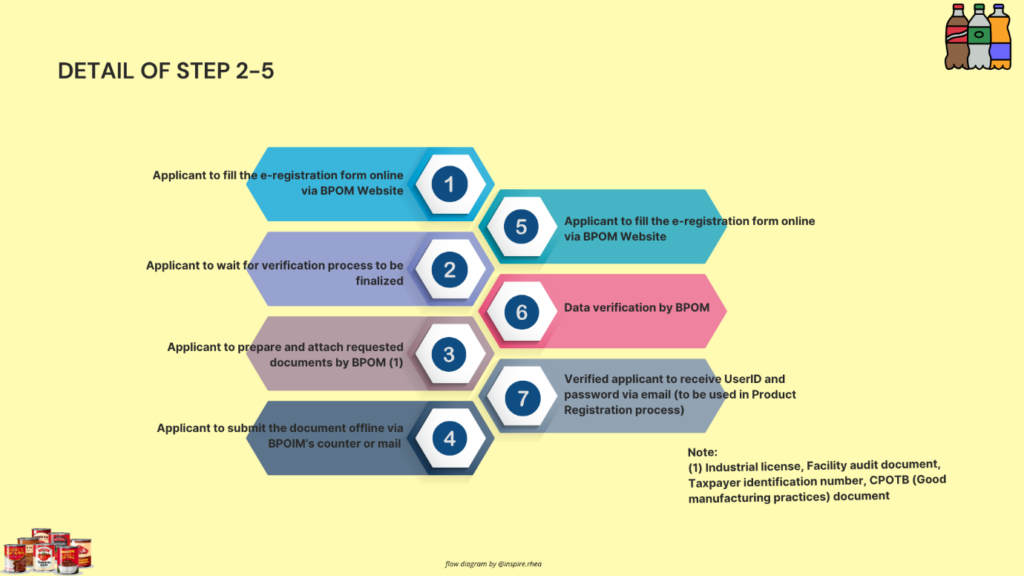
Key Considerations in the Registration Process
Prohibited Substances
BPOM enforces strict rules regarding prohibited substances in food and beverages. Businesses must ensure their products are free from:
- Harmful preservatives and artificial colorants.
- Additives not approved for use in Indonesia.
- Contaminants exceeding the permissible limit.
A complete list of prohibited substances can be found in BPOM’s official regulations, which are regularly updated to reflect new scientific findings.
Halal Certification: A Must for Muslim Consumers
Halal certification is a vital component for businesses targeting Indonesia’s predominantly Muslim population. As of 2024, halal certification is managed by the Ministry of Religious Affairs through the Halal Product Assurance Organizing Agency (BPJPH).
Steps to Obtain Halal Certification:
- Application Submission: Submit an online application via BPJPH’s platform, detailing the product’s ingredients and production processes.
- Inspection: An accredited Halal Inspection Agency (LPH) audits the facilities and evaluates the production process.
- Fatwa Issuance: The Indonesian Ulema Council (MUI) issues a halal decree based on the inspection results (still within the same platform/process).
- Certification: BPJPH issues the halal certificate, allowing businesses to display the official halal logo on their products.
Key tip: Ensure that your supply chain also complies with halal standards to avoid issues during the audit.
Quality Assurance Protocols
To maintain product safety and quality, BPOM mandates the implementation of Good Manufacturing Practices (GMP). Businesses are required to:
- Conduct regular testing to ensure product consistency.
- Document all quality control measures.
- Train staff in safety protocols and GMP standards.
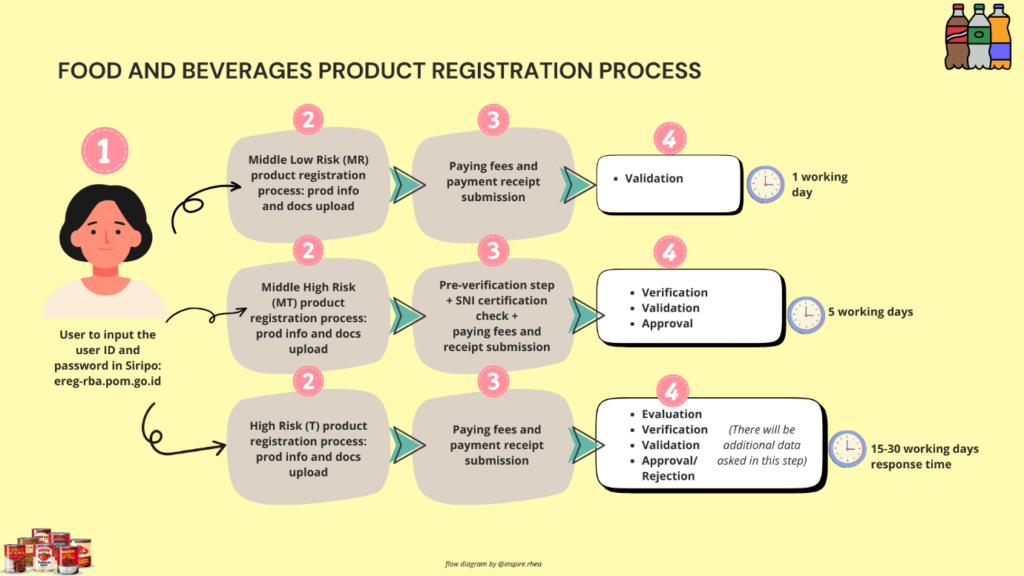
Food Registration Process in Detail
Once the product is ready, the registration process involves several key stages:
- Submission of Application:
Complete the online application via Rumah Siripo, providing detailed information about the product, including its composition, manufacturing process, and intended market.
- Submission of Application:
- Document Review:
BPOM reviews the submitted documents for completeness and accuracy. Missing or incorrect documentation can delay the process.
- Document Review:
- Laboratory Testing:
For certain products, BPOM may require samples for laboratory testing to verify compliance with safety and quality standards.
- Laboratory Testing:
- Inspection (if applicable):
High-risk products may necessitate an on-site inspection of the production facility.
- Inspection (if applicable):
- Approval and Registration Number Issuance:
Once approved, BPOM assigns a unique registration number, which must be displayed on the product label.
- Approval and Registration Number Issuance:
- Post-Market Surveillance:
BPOM conducts periodic checks on registered products to ensure continued compliance.
- Post-Market Surveillance:
Recent Updates in Food and Beverage Regulations
To streamline processes and enhance consumer safety, BPOM has introduced several regulatory updates:
- Digital Labels: Businesses can now opt for e-labelling as long as it meets BPOM requirements.
- Stricter Import Controls: Imported products must comply with the same standards as locally produced items.
- Mandatory Halal Logos: All halal-certified products must display the official halal logo issued by BPJPH.
Tips for Long-Term Compliance
Maintaining compliance after registration is critical to avoid penalties or product recalls. Here are some tips:
- Stay informed: Monitor updates from BPOM and BPJPH regularly to stay ahead of regulatory changes.
- Conduct regular audits: Evaluate your production facilities and processes to ensure ongoing compliance.
- Maintain documentation: Keep all quality assurance and compliance records updated.
- Train employees: Regularly train staff on food safety standards and labelling requirements.
Conclusion
Registering food and beverage products in Indonesia requires meticulous attention to detail, adherence to BPOM standards, and compliance with halal certification requirements for Muslim consumers. By following the steps outlined in this guide and staying informed about regulatory updates, businesses can successfully navigate the registration process and tap into Indonesia’s dynamic food and beverage market.
For additional guidance, refer to BPOM’s online resources or consult regulatory experts familiar with Indonesia’s requirements.





